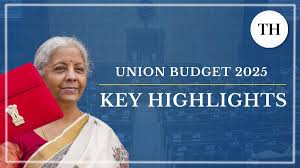RBI’s Diwali Plan: Transporting 102 Tonnes of Currency from England
As the festive season approaches in India, the Reserve Bank of India (RBI) has initiated a significant logistical operation to ensure adequate currency supply during Diwali. The central bank plans to transport 102 tonnes of new banknotes from England to meet the anticipated demand during the festive period. This operation not only demonstrates the RBI’s proactive measures but also highlights the importance of ensuring smooth economic transactions during peak times.
Logistics and Coordination
The RBI’s currency transportation involves meticulous planning and coordination with various agencies. The logistics of transporting such a substantial amount of currency require careful handling, security measures, and precise timing to ensure the notes reach India ahead of Diwali. The operation underscores the RBI’s commitment to facilitating financial accessibility during one of India’s most significant festivals, when economic activities typically surge.
Enhanced Currency Production
In addition to the transportation of currency, the RBI has ramped up its production capabilities to ensure that adequate notes are available for distribution across various states. The demand for cash tends to spike during festivals as people engage in shopping, gifting, and various rituals. The central bank aims to mitigate any cash shortages by enhancing production and ensuring timely delivery.
Economic Implications
The transportation of currency is crucial not only for festive transactions but also for the overall economic health of the country. Adequate cash flow facilitates smoother business operations and consumer spending, which are vital for economic growth. The RBI’s efforts reflect its understanding of the cash economy’s dynamics in India, particularly during significant events that stimulate consumer behavior.
Environmental Considerations
Interestingly, the RBI is also mindful of the environmental impact of such large-scale operations. The central bank is exploring options for sustainable transportation methods to reduce carbon footprints associated with this currency movement. This initiative aligns with broader national goals aimed at promoting sustainability while addressing economic needs.
Conclusion
The RBI’s initiative to transport 102 tonnes of currency from England signifies its proactive approach to ensuring the smooth functioning of the economy during Diwali. By enhancing logistical capabilities and production capacity, the central bank aims to meet the heightened demand for cash during this vibrant festival, while also considering environmental sustainability.

Why This News is Important
Strengthening Economic Stability
The RBI’s plan to transport 102 tonnes of currency is vital for maintaining economic stability during the Diwali season. With increased spending on gifts, decorations, and other festive expenses, ensuring sufficient currency supply helps facilitate smooth transactions and supports overall economic activity.
Support for Small Businesses
This operation significantly benefits small businesses that rely on cash transactions. Many vendors and shops, especially in rural areas, primarily deal in cash, making it essential for them to have access to sufficient currency during peak shopping seasons.
Prevention of Currency Shortage
The RBI’s proactive measure aims to prevent currency shortages, which can disrupt economic activities and lead to panic among consumers. By planning ahead, the RBI can mitigate potential issues and ensure that consumers have access to cash when they need it most.
Impact on Consumer Confidence
Timely currency availability boosts consumer confidence. When people feel assured that they can access cash easily, they are more likely to engage in spending, which is crucial for driving economic growth during festive seasons.
Promoting Financial Inclusivity
By ensuring that currency is available across various regions, including rural areas, the RBI promotes financial inclusivity. This approach ensures that everyone, regardless of their location, can participate in the economic activities associated with festivals.
Historical Context
The Reserve Bank of India has a long-standing tradition of ensuring the availability of currency during festive seasons. Historically, the demand for cash tends to increase significantly during festivals like Diwali, when people engage in shopping, celebrations, and various cultural activities. Over the years, the RBI has adapted its strategies to manage currency distribution effectively. The transportation of currency from abroad, particularly during peak seasons, has been a part of these strategies, reflecting the bank’s commitment to maintaining a stable economic environment.
This year, the RBI’s plan to transport 102 tonnes of currency from England is indicative of its ongoing efforts to address the evolving needs of the Indian economy while also enhancing its operational capabilities.
Key Takeaways from RBI’s Diwali Currency Transportation
| Serial No. | Key Takeaway |
|---|---|
| 1 | RBI is transporting 102 tonnes of currency from England to meet Diwali demand. |
| 2 | Enhanced logistics and coordination are essential for the operation’s success. |
| 3 | Increased currency production is in place to ensure availability across states. |
| 4 | The operation supports small businesses and cash-dependent vendors during the festival. |
| 5 | RBI is considering sustainable methods for currency transportation to minimize environmental impact. |
Important FAQs for Students from this News
1. Why is the RBI transporting currency from England?
The RBI is transporting 102 tonnes of currency from England to ensure there is enough cash supply during the Diwali festival, when demand for cash typically surges due to increased consumer spending.
2. How does this currency transportation benefit small businesses?
Small businesses, especially those that primarily operate in cash, benefit from the RBI’s currency transportation by having access to sufficient cash, enabling them to conduct transactions smoothly during the festive season.
3. What measures is the RBI taking to ensure the safe transportation of currency?
The RBI has implemented meticulous planning and coordination with various agencies to handle the logistics of transporting currency securely, ensuring that the cash arrives safely and on time.
4. How does the RBI address environmental concerns during this operation?
The RBI is exploring sustainable transportation methods to minimize the environmental impact of moving a large quantity of currency, aligning with broader national sustainability goals.
5. What historical context surrounds the RBI’s currency transportation initiatives?
Historically, the RBI has always aimed to ensure adequate cash flow during major festivals in India, adapting its strategies over the years to meet the growing economic needs of the country during peak spending times.
Some Important Current Affairs Links


















